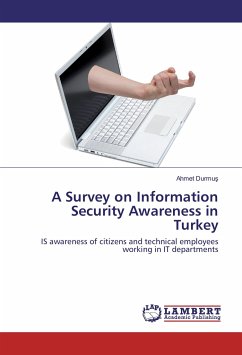
Executive Computing in Turkey
EIS Experiences in a Developing Country
Versandkostenfrei!
Versandfertig in 6-10 Tagen
52,99 €
inkl. MwSt.

PAYBACK Punkte
26 °P sammeln!
Executives have long been regarded as the last group of people in an organization to use computers. There are several reasons for this: their work is highly unstructured and non-repetitive; they rely on verbal communication more than any other type of communication; they already have support staff for their information needs; and it is difficult for system analysts to "make them talk" about their information requirements. Moreover, they are busy people who might not have time to acquire the skills needed to use computers. However, a new type of information system, known as Executive Informatio...
Executives have long been regarded as the last group of people in an organization to use computers. There are several reasons for this: their work is highly unstructured and non-repetitive; they rely on verbal communication more than any other type of communication; they already have support staff for their information needs; and it is difficult for system analysts to "make them talk" about their information requirements. Moreover, they are busy people who might not have time to acquire the skills needed to use computers. However, a new type of information system, known as Executive Information System (EIS), emerged in the 1980s aimed at executive users and this has achieved some success. This research is an exploratory analysis of EIS implementations in Turkey. Four pioneering organizations were identified and extensive interviews were conducted with the executive users and the support staff.












